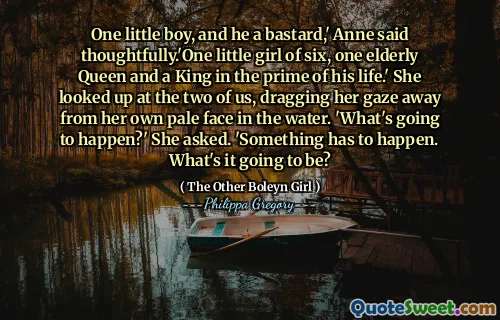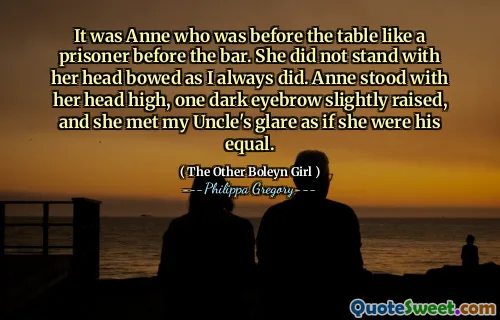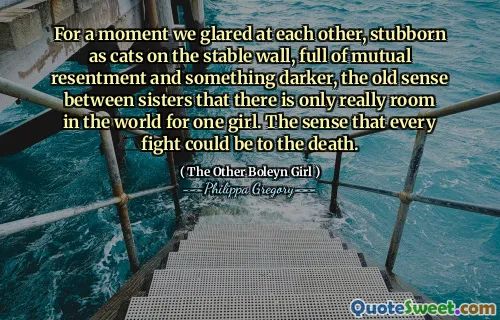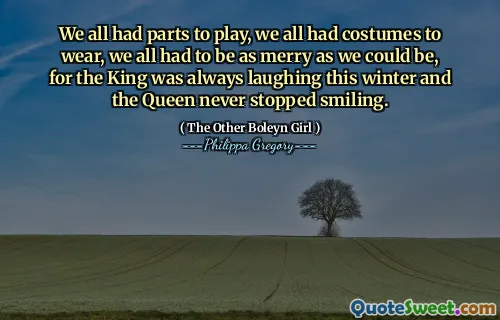
It was Anne who was before the table like a prisoner before the bar. She did not stand with her head bowed as I always did. Anne stood with her head high, one dark eyebrow slightly raised, and she met my Uncle's glare as if she were his equal.
This quote vividly captures Anne's bold and defiant demeanor in a setting that is traditionally associated with submission and plea, such as court or interrogation. The imagery of her standing like a prisoner before the bar juxtaposed with her unconstrained posture underscores her courage and confidence. Unlike the narrator, who apparently adopts a more submissive stance—bowing her head and perhaps exhibiting deference—Anne's stance is one of unwavering self-assurance. Her raised eyebrow and the way she meets her uncle’s gaze as an equal highlight her independence, strength, and perhaps her resistance to authority or societal expectations. Some might interpret her posture as a refusal to be intimidated or silenced, which signals her inner strength and willingness to face confrontation head-on. In the context of the story, this moment underscores the themes of power, rebellion, and gender dynamics—Anne's assertiveness challenging the traditional roles prescribed to women of her time. Her confidence could be seen as both a form of protest and a demonstration of dignity. Such a posture transforms her from a mere participant in a scene into a symbol of resilience and defiance. This powerful image invites reflection on how appearances and posture can communicate complex emotions and social standings, especially in moments charged with authority and judgment.











